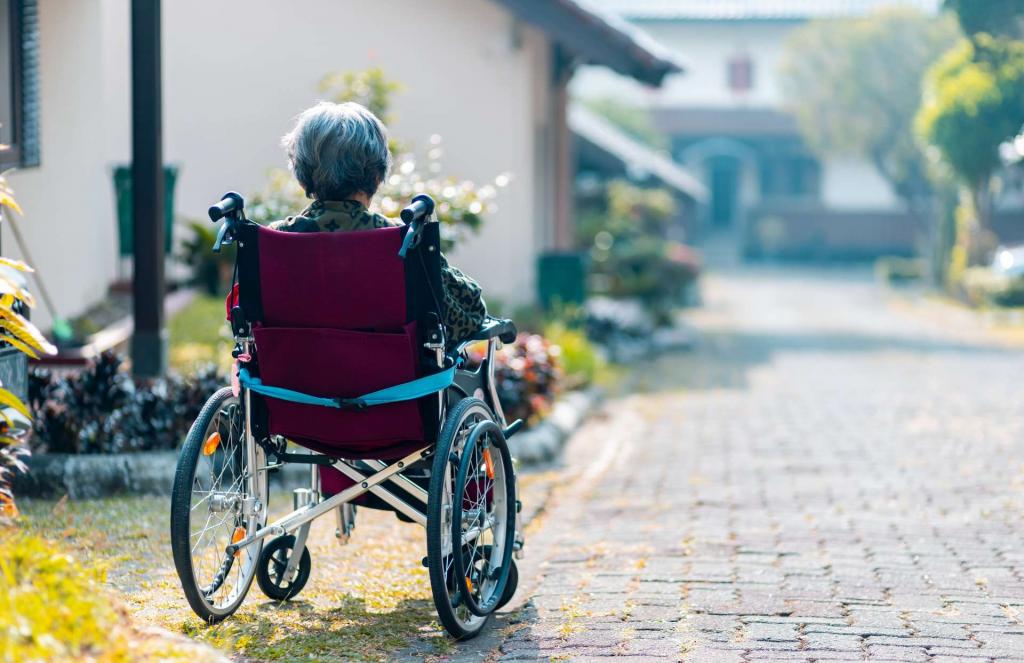Thessaloniki gets ready for its metro launch in November
The underground rapid transit lines have been under construction for almost two decades due to various project delays
 TheMayor.EU logo
TheMayor.EU logo 
Maintaining independence and participation in public life are crucial for people suffering the disease, Source: Steven HWG / Unsplash
According to Vienna’s chief physician of psychosocial services, in 2050, dementia will be the biggest issue for the healthcare system and the families
Today, Vienna’s chief physician of psychosocial services and President of the Austrian Society for Geriatric Psychiatry and Geriatric Psychotherapy, Dr Georg Psota, called for more recognition for dementia patients in the Austrian capital.
Dr Psota was quoted in an official statement by the city, explaining that dementia will become one of the biggest medical issues in the future. This, he pointed out, was due to increased standards of life and longer lifespans, but also, it is a statistical phenomenon.
According to current data, there are around 130,000 currently living with dementia in Austria. In Vienna, that number is around 30,000 people. He pointed out that projections say that can increase to 250,000 in Austria and 60,000 in Vienna, by 2050.
Dr Psota explained that in the coming decades dementia would likely become the biggest challenge for care facilities and families, as the population is ageing. He continued by pointing out that currently four out of five dementia patients live at home, rather than in a facility.
Additionally, three out of four patients are cared for by family members and in two-thirds of these cases, those family members are over 60 years old. This puts enormous pressure on society and healthcare authorities need to react.
One of the biggest hurdles for people with dementia is the urban environment, as cities are generally not built for people that have difficulties navigating them. At the same time, living a fulfilling and active, dignified life could slow down the disease.
Dr Posta also said that housing and an accessible daily structured life need to be included in the care package and that would need a lot more care staff and family members.
One of the solutions he pointed to was Vienna’s 2035 Dementia Strategy. The policy itself was adopted in late April 2022. One of the key actions in the first stages of the strategy involves linking dementia patients with non-governmental organisations and helping them create joint, visible leisure activities.
According to Peter Hacker, City Councillor for Social Affairs, this would help start a process of de-stigmatisation, which in turn would lead to more broad support among the Viennese population.
Councillor Hanke explained that in addition to medical care, maintaining independence and participation in public life are crucial for people suffering from the disease.
Are you between 15 and 29 years old? Take a moment to complete a short survey on youth empowerment on this link.

The underground rapid transit lines have been under construction for almost two decades due to various project delays

Now you can get your wine in Talence by paying directly in Bitcoin

That’s because the state has to spend money on updating the railway infrastructure rather than subsidizing the cost of the popular pass

Rethinking renewable energy sources for the urban landscape

The examples, compiled by Beyond Fossil Fuels, can inform and inspire communities and entrepreneurs that still feel trepidation at the prospect of energy transition

Now you can get your wine in Talence by paying directly in Bitcoin

The 10th European Conference on Sustainable Cities and Towns (ESCT) sets the stage for stronger cooperation between the EU, national and local level to fast track Europe's transition to climate neutrality.

At least, that’s the promise made by the mayor of Paris, Anne Hidalgo

The underground rapid transit lines have been under construction for almost two decades due to various project delays

At least, that’s the promise made by the mayor of Paris, Anne Hidalgo

Hostal de Pinós is located in the geographical centre of the autonomous region

Despite its church-y name, the district has long been known as the hangout spot for the artsy crowds

Urban dwellers across the EU are having a say in making their surroundings friendlier to people and the environment.

Forests in the EU can help green the European construction industry and bolster a continent-wide push for architectural improvements.

Apply by 10 November and do your part for the transformation of European public spaces

An interview with the Mayor of a Polish city that seeks to reinvent itself

An interview with the newly elected ICLEI President and Mayor of Malmö

A conversation with the Mayor of Lisbon about the spirit and dimensions of innovation present in the Portuguese capital














